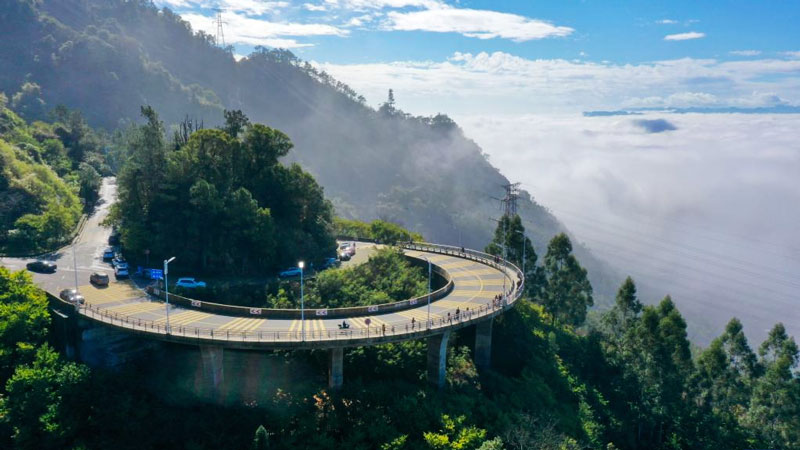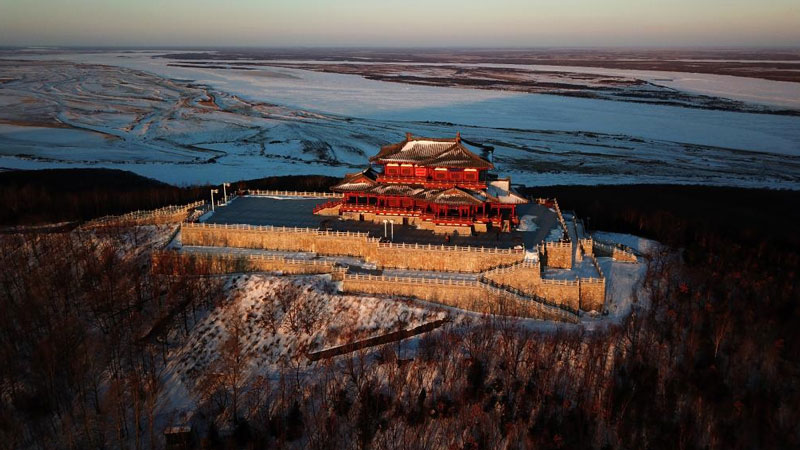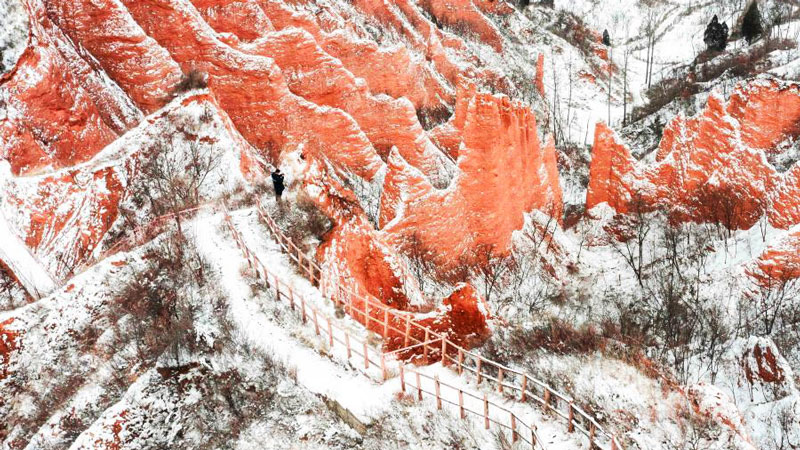Guardians of the 'kidneys of earth' write stories of harmonious coexistence between man and nature
Wetlands are known as the "kidneys of Earth", and play an important role in human beings' sustainable development. According to a research report on wetlands in China released by the Chinese Academy of Sciences, China's wetlands are witnessing recovery in terms of size, and progress is also being made in the conservation of biodiversity and technologies for protecting wetlands.
None of these achievements would have been possible without the persistence and efforts of the wetlands' guardians. One of them is a volunteer who has been patrolling the Yellow River Wetland for over 20 years and rescued more than 400 wild animals. Another has spent over 20 years protecting the Xixi Wetland and showcased the cleanliness of its water to the world at the 14th Meeting of the Conference of the Contracting Parties to the Ramsar Convention on Wetlands (COP14). Another guardian built a wetland park alongside the Qinghai Lake to demonstrate its astounding natural scenery to the public... All these guardians have their own unique stories, but they have one common goal: to protect the "kidneys of the Earth".
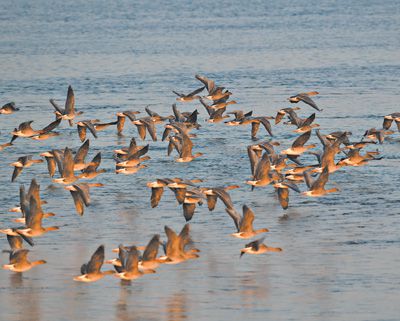
Wild birds at the Yellow River ( People's Daily Online/Ma Li)
Fan Yunting: "My favorite thing is hearing birds singing and seeing wild geese flying."
On one early morning in deep winter, the freezing cold wind blows across the Kaifeng section of the Yellow River. Fan Yunting, a farmer from Daxinzhuang village, Liuyuankou township, Kaifeng city, central China’s Henan Province, is making his way to the bank of the Yellow River on his bicycle. Fan has been travelling this path for 23 years.
Fan, 67, has been fond of birds since he was a child. In his spare time, Fan often watches birds on the bank of the Yellow River and spends his money on medical treatment and food for birds.
Two decades ago, poaching of wild birds on the bank of the Yellow River was rife. After seeing the scattered feathers of wild birds that had been poached on the river bank, Fan felt upset and made up his mind to protect them. In the spring of 2000, he became a volunteer ranger at Liuyuankou Provincial Wetland in Kaifeng City.
Over the past 20 years, Fan has patrolled more than 16,000 hectares of the wetland area. During his patrols, four of his bicycles have been broken, and he has encountered many dangers and even injuries, but has never given up despite being misunderstood by so many people.
Fan has devoted his life to protecting birds in wetland areas. He has rescued more than 400 wild animals, handed over more than 500 birds to animal protection agencies and prevented more than 200 cases of poaching. Due to his outstanding actions, he has received many accolades and used all his prizes to set up boards at the Yellow River bank popularizing laws and regulations on wildlife protection.
Today, this area is free from poaching, and has become a paradise for birds once again. During the migration period, thousands of migratory birds gather in Liuyuankou Wetland, drawing crowds of photographers to the spectacular scene. "Thanks to the regulations from the government and the growing awareness of protecting wildlife among the public, there is hardly any poaching of birds," Fan said, "My favorite thing is hearing birds singing and seeing wild geese flying."
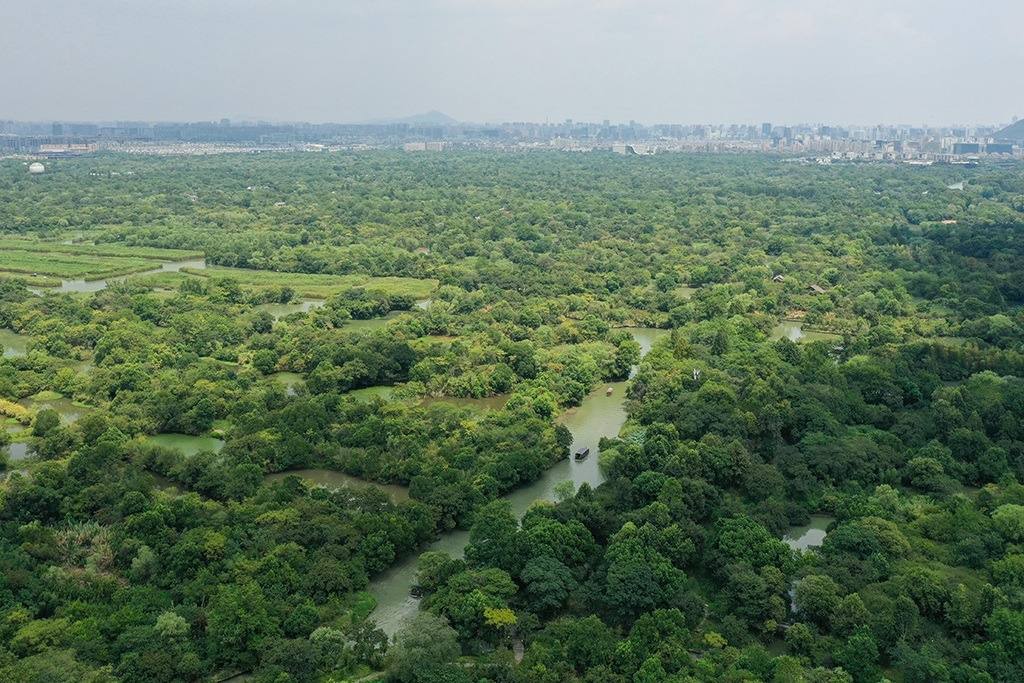
Scenery of Xixi Wetland (Xinhua/Huang Zongzhi)
Liu Xiang: "We must protect Xixi Wetland as a gift to future generations."
In Xixi National Wetland Park, Hangzhou, east China's Zhejiang Province, a night heron, a kind of rare bird, stands on a piece of driftwood. Liu Xiang quietly takes out his camera and snaps a photo excitedly. "Seeing this really makes me happy," he said.
Xixi Wetland in Hangzhou is the only wetland park that features urban and farming culture in China. It has also become a popular tourist attraction. Liu, Deputy Director of the Ecology and Culture Research Center of Hangzhou Xixi National Wetland Park, has spent 20 years working in this place since the implementation of the Comprehensive Project of Protecting Xixi Wetland in 2002.
Various technologies have been applied in this area. Liu and his colleagues have used concealed pipes to connect isolated pools in the wetland to make them flow and look better. In addition, meteorological data and air/water quality monitoring equipment as well as satellite images have also been used.
In 2018, Liu and his colleagues built an improved habitat for wild birds with a large water surface and shoal area. Many rare birds have come to this place since then, including the oriental stork, red-crowned crane and black-faced spoonbill, while biodiversity here has been constantly enriched over the past decade. Liu likes to use social media platforms to showcase Xixi Wetland, believing that the posts are more interesting and contain more details than regular news reports.
In November 2022, the 14th Meeting of the Conference of the Contracting Parties to the Ramsar Convention on Wetlands (COP14) was held in Wuhan, central China's Hubei Province. Liu attended the conference and gave a speech there as the representative of Xixi Wetland. He also brought two liters of clear water from Xixi Wetland and showed it to guests from around the globe, demonstrating that the beauty of Xixi Wetland lies in its clean water, which is the best proof of the achievements that have been made in wetland conservation.
"Some people believe that Hangzhou West Lake is a treasure left by our predecessors to today, and Xixi Wetland is a gift that will be left to future generations. We must protect Xixi Wetland as a gift to future generations," Liu said.
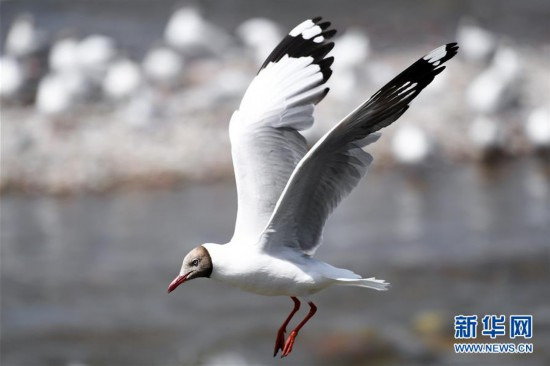
A flying brown-headed gull on Shaliu River (Xinhua/Zhang Hongxiang)
Wang Wei: "Let more people enjoy the harmonious coexistence between man and nature."
On Dec. 29, 2021, Shaliu River National Wetland Park, located in Gangcha county, Haibei Tibetan Autonomous Prefecture, northwest China's Qinghai Province, was listed as a national level wetland park. Behind this title was five years of efforts from Wang Wei. After hearing this news, Wang Wei was overwhelmed by mixed feelings, and tears welled up in his eyes.
Wang is the Director of the Shaliu River National Wetland Park Management Center. Soon after taking up the position in December 2016, he felt stressed out by the sheer amount of problems that had to be solved.
Wang did a lot of research and consulted many experts before coming up with a comprehensive plan to build the wetland park. Shaliu River is the main route for the migration of Przewalski's naked carp, a kind of endangered fish, but its banks had become a dump years ago.
To solve this problem, Wang and his colleagues spent a great deal of time making wetland conservation efforts, and the environment here has greatly improved as a result.
Nowadays, Shaliu River National Wetland Park has become a well-known tourism site. Many tourists come to see the Przewalski's naked carp here, and a number of local villagers have started running farm-stays. They call Wang the "Green Guardian of the Highland".
"I want more people to visit Qinghai Lake, Gangcha and Shaliu River National Wetland Park, to learn about the mystery and vastness of the Tibetan city on the highland, and let more people enjoy the harmonious coexistence between man and nature here," Wang said.
Photos
Related Stories
- Work stepped up on wetlands protection
- China's ecological environment improved greatly over past decade: CAS
- Baby swans born in Gansu’s Zhangye National Wetland Park
- More wild bird species discovered in major wetland in north China
- Beautiful early winter scenery of Ergun Wetland in N China's Inner Mongolia
Copyright © 2023 People's Daily Online. All Rights Reserved.






